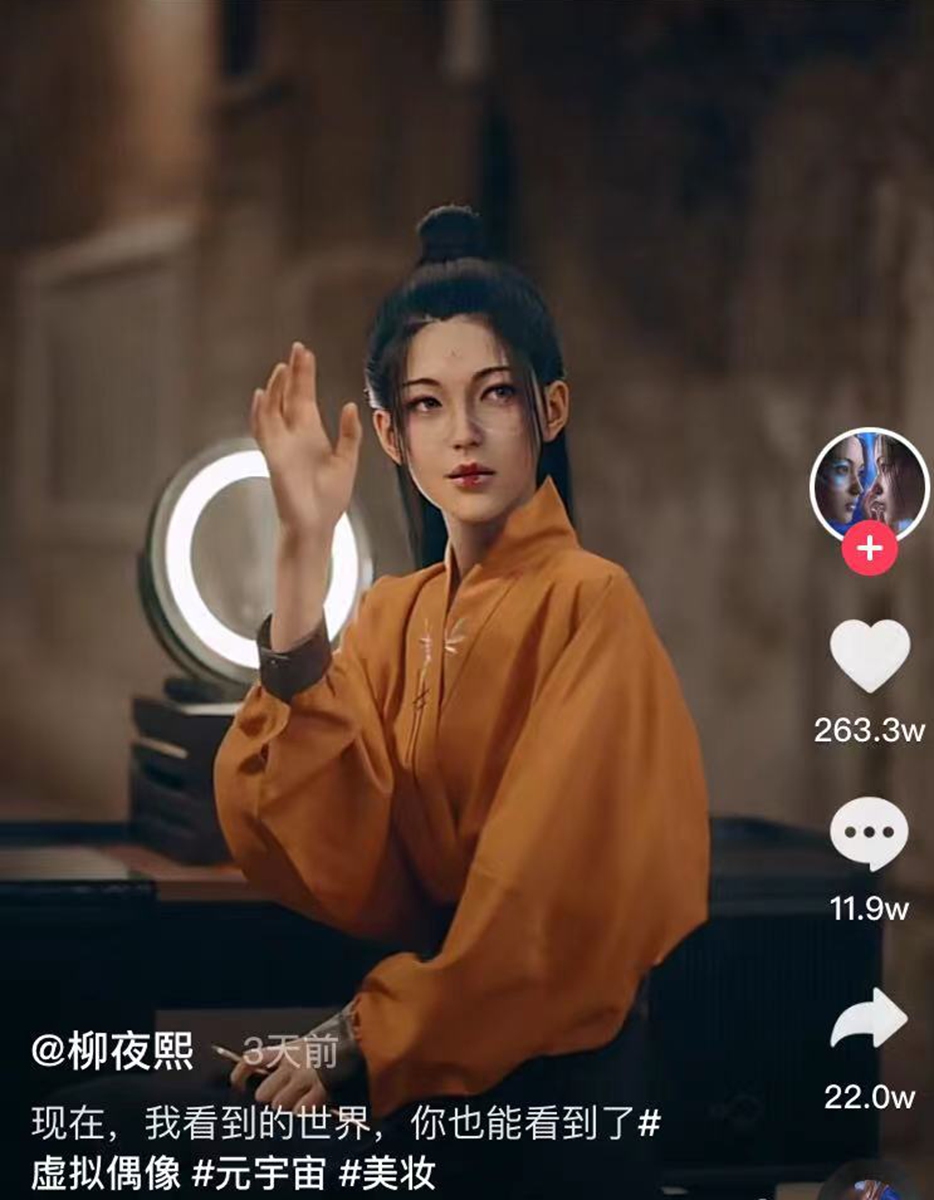Virtual idols taking over online platforms; new favorites have acquired 2.8m fans in 4 days

Virtual idol Liu Yexi Photo: Screenshot of Douyin
The virtual idol industry in China has continued to develop as figures living in the cyber world are striking out from traditional platforms such as variety shows and music videos and marching onto short video and livestreaming platforms to compete with real web celebrities.
A new virtual idol named Liu Yexi debuted on Douyin, the Chinese-version of TikTok, on Sunday and after four days, the figure defined as a "virtual beauty vlogger" by its creators has earned more than 2.8 million followers.
Liu's first short video has been liked over 2.6 million times and praised for its high production values. The two-minute video shows a boy coming across a woman dressed like a Taoist priest with her back to everyone as she does her make-up in the mirror. The woman is Liu. Liu then turns around and the onlookers are terrified by her make-up, except for the boy.
The boy asks Liu why her make-up is so weird and Liu uses the make-up pen to lightly brush his eyes, allowing him to see the fantasy world she sees with her own eyes.
The video and the figure containing both Chinese traditional cultural elements and science-fiction elements stunned Chinese netizens. Some professional beauty vloggers commented under the video, complaining that the figure might cause them to lose their jobs.
Liu is considered to be one of the highest quality virtual characters available online in recent years, since the video looks almost photorealistic.
Many experts say China is on the verge of a virtual idol era, as these digitally rendered avatars are becoming more interactive and humanlike, with technological improvements in artificial intelligence, motion capture and virtual reality progressing by leaps and bounds.
The commercial value of virtual idols is also on the rise. Virtual idols have begun taking part in more industries, including live streaming, e-commerce and advertising. They are rapidly filling the demand for idols in all walks of life.
Luo Tianyi, one of China's most well-known virtual idols, appeared on a stream with China's most popular livestreamer Li Jiaqi to promote goods in April 2020, and McDonald's unveiled its own virtual idol, Happy Sister, as its new brand ambassador in China in January.
Many worry that these rapidly rising virtual figures will soon replace real humans and trigger an upheaval in the entertainment industry, but Ding Daoshi, an independent analyst in the internet sector, has a different view.
Ding told the Global Times on Thursday that "when Luo co-hosted an e-commerce livestream show with Li, some voices said virtual idols can replace human livestreamers, but after a year, virtual idols are far from reaching the influence of real web celebrities, especially those like Li and Wei Ya (a top-selling live-streaming hostess)."
He added that the development of virtual idols should be encouraged, but that the industry still has a long road to go.
"These so-called virtual idols have real human teams to back them and control them. They are not really virtual. The real virtual idol will be when actual artificial intelligence (AI) achieves a new level of self-learning and self-training and then interacts with others."

